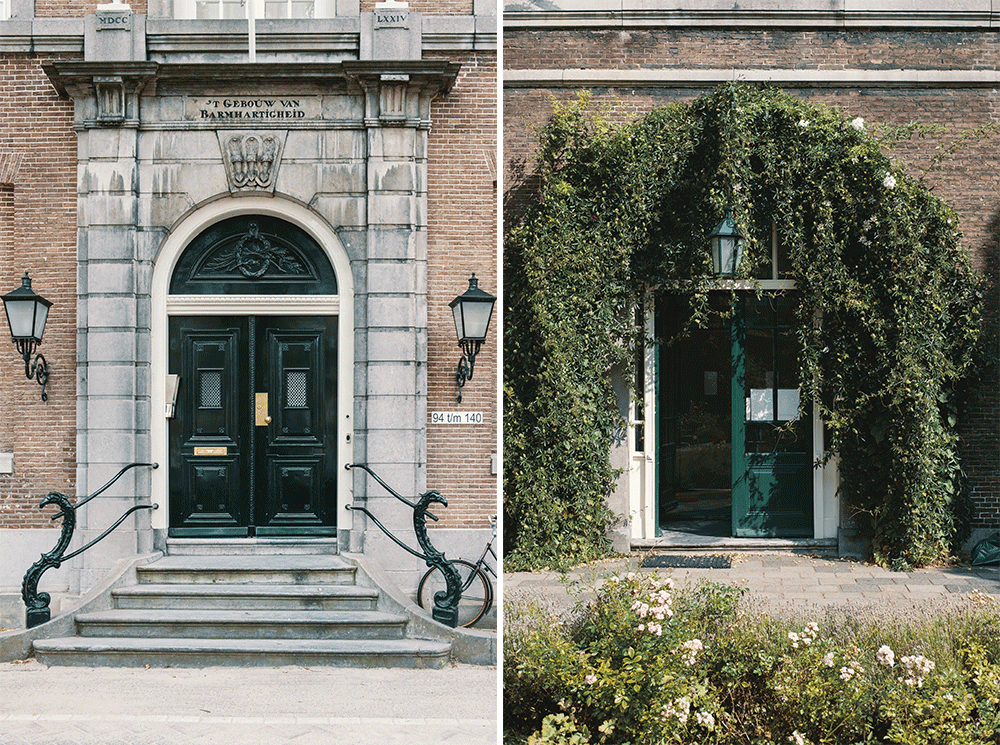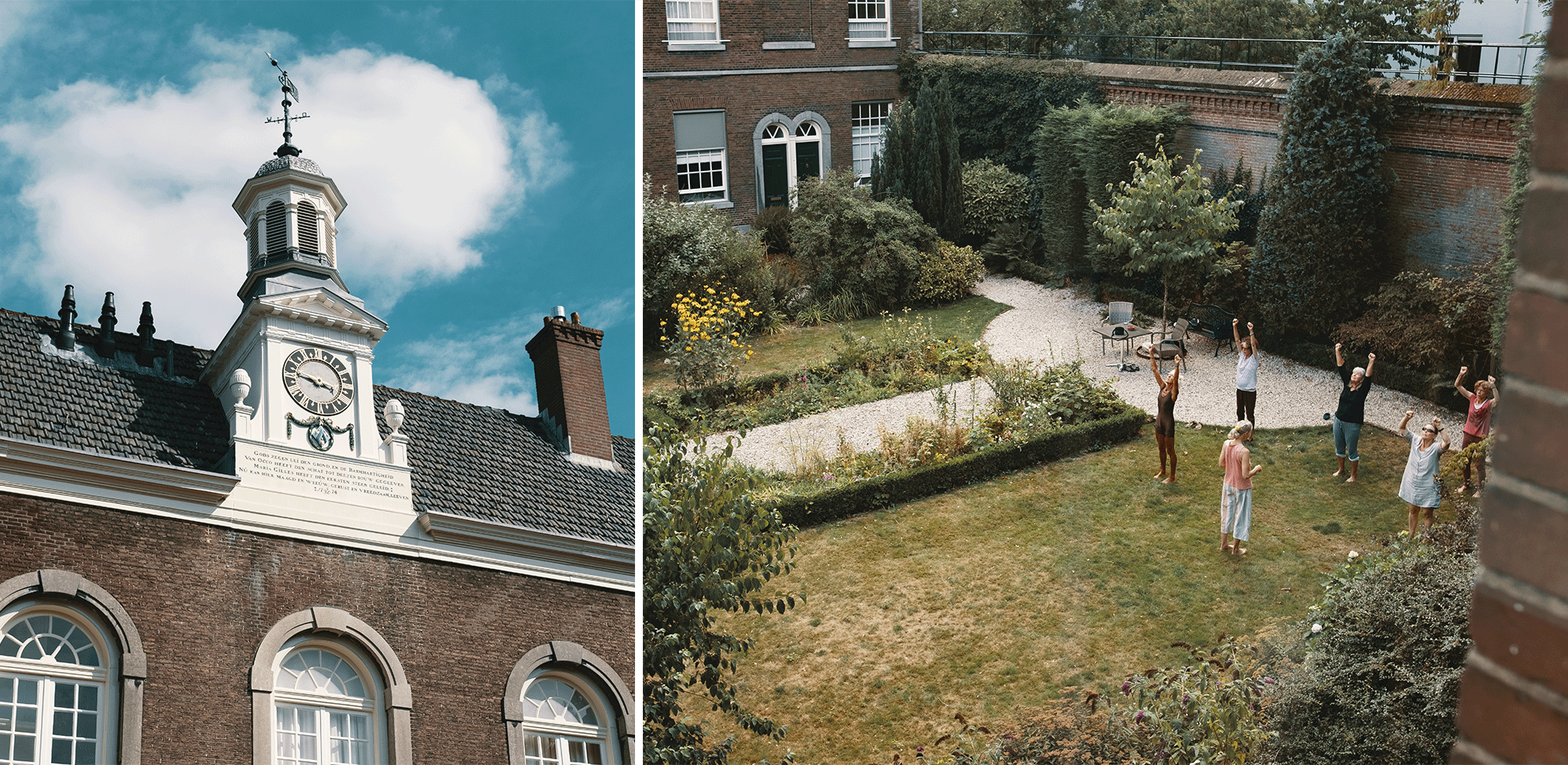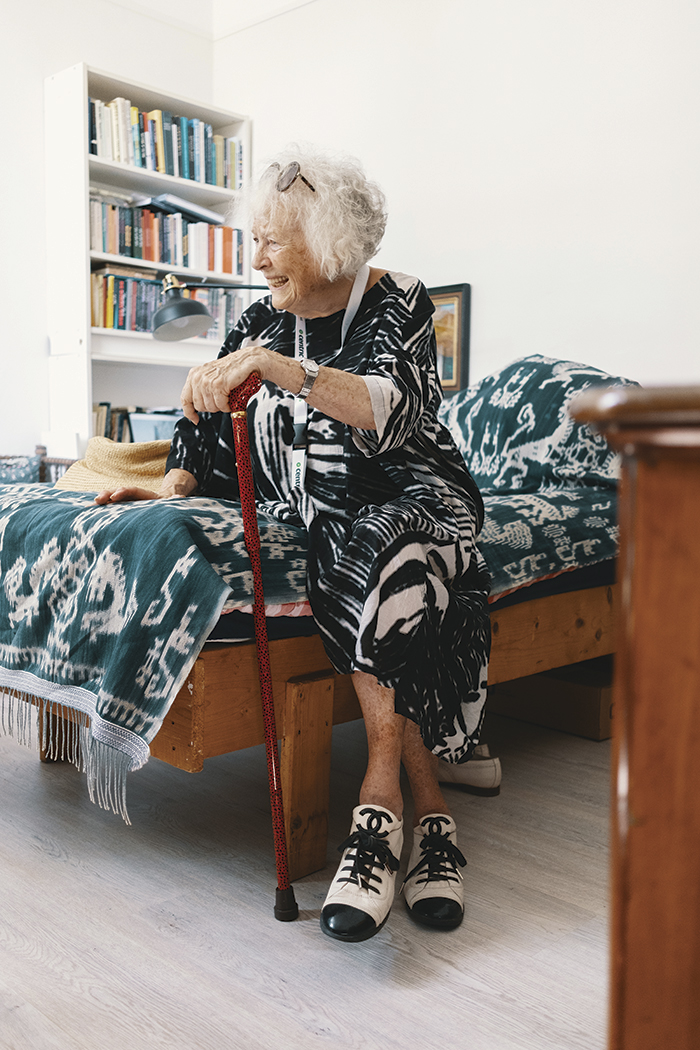- May 30, 2019
- Lauren Hassani
Marjan Berk and the Occo Hofje

86 Years Young, in a Special Place
On the outside, the brick façade of the Occo Hofje looks like other stately buildings that line Amsterdam’s many canals. Yet stepping through the wooden doors reveals a surprisingly large grassy courtyard filled with flowers and trees — an oasis in a busy neighborhood. The buildings that surround the courtyard contain several dozen apartments for older women, including Marjan Berk — prolific author, award-winning screenwriter, outspoken feminist and larger than life personality.
At age 86, Berk represents how determined seniors can live independently in close-knit Dutch society. Her distinctive apartment complex also is an example of the varied ways senior housing is arranged in the Netherlands, although Occo Hofje would be unusual in any nation.
Even approaching her ninth decade, Berk is still working (she writes a weekly column for Algemeen Dagblad, one of the largest newspapers in the Netherlands) and voraciously curious. Her current project is a book on the history of her living quarters, which was founded in 1774 by Cornelia Elisabeth Occo, an unmarried businesswoman descended from wealthy Dutch merchants. Occo decreed in her will that the building should be used in perpetuity as a free home for those in need, especially widows and older women.

The Occo Hofje clock tower; resident-led yoga class in the garden.
ABOVE LEFT: The entrance to the Occo Hofje, the inscription over the door reads, “The Building of Mercy;" the entrance to the courtyard, lined with greenery.
BELOW: Berk, at home surrounded by books and art.
This was a common occurrence in Amsterdam, where about 30 of these historic hofjes, or courtyards, remain. Between the twelfth and eighteenth centuries, wealthy Amsterdammers gave generously to charitable organizations and many founded these almshouses as a sanctuary for poor, elderly women. It was a precursor to the modern Dutch social welfare system, protecting older, vulnerable citizens from poverty.
Marjan Berk’s apartment, which overlooks the courtyard, is small but cozy. Over the course of a two-hour conversation, Berk frenetically pinballs between the fascinating history of the Occo Hofje and dozens of other topics: her memories of World War II (she was just seven years old when she lived through the bombing of Rotterdam), her own #MeToo moments (she once survived an attempted kidnapping and assault), and the risqué artwork on her walls (nude paintings, a gift from her ex-husband).

In a remarkable life that exemplifies how people, even in their later years, can remain engaged, Berk has reinvented herself many times. First a nursing school student, then actress and cabaret performer, then screenwriter turned author and columnist. In the meantime, she married twice and had five children and eight grandchildren. She is known for writing Vrouwenvleugel, a TV series about life in the women’s ward of a Dutch prison. Some 20 years before Orange is the New Black (Netflix’s hit show set in a US women’s minimum security prison), Berk’s show confronted all sorts of controversial topics and was even the first Dutch television series with a lesbian character. She has more than 40 books to her credit, all authored after the age of 50.
Age hasn’t dulled her sharp mind — and she still has much to say. “I have the remembrance of an elephant,” she says, laughing gleefully. “I can find my way through the past very well because that’s what writers do — that’s the work, eh? You can’t stop being aware.”
At Occo Hofje, Berk has the best of both worlds: the security of knowing there’s care if she needs it, and the freedom to work, create, and live her life. She was thrilled to be admitted after spending half a year on the waiting list. Residents pay a modest rent for the privilege to live in this building, which was fully restored in the early 1990s and is still under the control of the original foundation. Berk is one of eight residents over the age of 80. The caretaker, a shy, unassuming man named Joop, does everything from tending the garden to looking after the residents. The vision of Cornelia Elisabeth Occo lives on through this unique place, and its equally unique inhabitant.
“What’s so fantastic is that it’s nonfiction,” Berk says, her face lighting up when talking about the Occo story. “It’s all true! It’s funny that what she invented at that time was the most modern way to care for our older people.” ◆